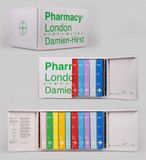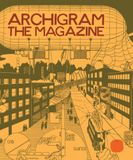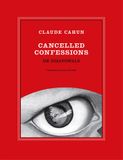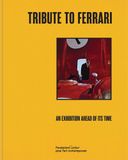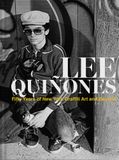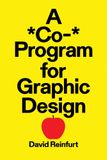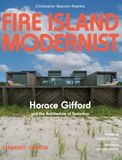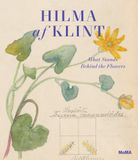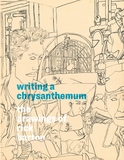| |||||||||||||||||||||||||
ARTBOOK BLOGEventsStore NewsMuseum Stores of the MonthNew Title ReleasesStaff PicksImage GalleryBooks in the MediaExcerpts & EssaysArtbook InterviewsEx LibrisAt First SightThe Artbook | D.A.P. 2025 Gift GuidesArtbook Featured Image ArchiveArtbook D.A.P. Events ArchiveDATE 2/1/2026 Black History Month Reading, 2026DATE 1/22/2026 ICP presents Audrey Sands on 'Lisette Model: The Jazz Pictures'DATE 1/21/2026 Guggenheim Museum presents 'The Future of the Art World' author András Szántó in conversation with Mariët Westermann, Agnieszka Kurant and Souleymane Bachir DiagneDATE 1/19/2026 Rizzoli Bookstore presents Toto Bergamo Rossi, Diane Von Furstenberg and Charles Miers on 'The Gardens of Venice'DATE 1/19/2026 Black Photojournalism, 1945 to 1984DATE 1/18/2026 Artbook at MoMA PS1 presents Paul M. Farber and Sue Mobley launching 'Monument Lab: Re:Generation'DATE 1/17/2026 Artbook at Hauser & Wirth Los Angeles Bookstore presents Peter Tomka on 'Double Player'DATE 1/14/2026 Printed Matter, Inc. presents Pedro Bernstein and Courtney Smith on "Commentary on 'Approximations to the Object'"DATE 1/13/2026 Join us at the Winter Atlanta Gift & Home Market 2026DATE 1/12/2026 Pan-African possibility in 'Ideas of Africa'DATE 1/11/2026 Previously unseen photographs by Canadian color master Fred HerzogDATE 1/5/2026 Minnie Evans’ divine visions of a lost worldDATE 1/1/2026 Happy New Year! | STAFF PICKS | FROM THE SHELVES
| ||||||||||||||||||||||||
STATUS: Out of print | 11/25/2008 For assistance locating a copy, please see our list of recommended out of print specialists |
 Memory and Transformation
Memory and Transformation
International Triennial Apeldoorn: 100 Days of Culture, Gardens and Landscape
Published by nai010 publishers.
Edited by Bert van Meggelen, Olof Koekebakker.
In the summer of 2008, Apeldoorn, the Netherlands' garden city, hosts the inaugural International Garden and Landscape Architecture Triennial--which takes on key issues at the heart of landscape and garden architecture and aims to define and refine the relationship between nature, culture and landscape. Contemporary landscape architecture is called on to create and implement pleasing and ecologically sustainable solutions in situations where different--and often competing--functions exist on the same tract of land. There are a great many people--local residents, ecological and cultural heritage conservationists and academics--for whom these questions are of great concern. Even for the average urban dweller or suburban homeowner, public and private gardens provide society, respite, leisure and an increasingly rare connection with the land. Not just a catalogue overview of the triennial's program, this thoughtful volume includes essays by leading scholars as well as interviews with policy makers and designers.
PUBLISHER
nai010 publishers
BOOK FORMAT
Paperback, 9.5 x 11.5 in. / 176 pgs / illustrated throughout.
PUBLISHING STATUS
Pub Date 9/1/2008
Out of print
DISTRIBUTION
D.A.P. Exclusive
Catalog: FALL 2008 p. 111
PRODUCT DETAILS
ISBN 9789056620158 FLAT40
List Price: $55.00 CAD $72.50
AVAILABILITY
Not available
STATUS: Out of print | 00/00/00 For assistance locating a copy, please see our list of recommended out of print specialists |
 Edible Estates: Attack on the Front Lawn, 2nd Revised Edition
Edible Estates: Attack on the Front Lawn, 2nd Revised Edition
A Project by Fritz Haeg
Published by Metropolis Books.
Preface by Fritz Haeg. Text by Will Allen, Diana Balmori, Rosalind Creasy, Fritz Haeg, Michael Pollan, Eric W. Sanderson, Lesley Stern, et al.
Since the first edition of Edible Estates: Attack on the Front Lawn was published in 2008, interest in edible gardening has exploded across the United States and abroad. Even First Lady Michelle Obama is doing it! This greatly expanded second edition of the book documents the eight Edible Estates regional prototype gardens that author Fritz Haeg has planted in California, Kansas, Texas, Maryland, New Jersey, New York and England, and includes personal accounts from the homeowner-gardeners about the pleasures and challenges of publicly growing food where they live. Ten “Reports from Coast to Coast” tell the stories of others who have planted their own edible front yards in towns and cities across the country. In addition to essays by renowned landscape architect and scholar Diana Balmori, edible-landscaping pioneer Rosalind Creasy, bestselling author and sustainable-food advocate Michael Pollan and artist and writer Lesley Stern, this edition features updated text by Haeg (including his observations on the Obama White House vegetable garden); a contribution from Mannahatta author Eric W. Sanderson; and Growing Power founder, MacArthur Fellow and urban farmer Will Allen's never-before-published Declaration of the Good Food Revolution. This is not a comprehensive how-to book, nor a showcase of impossibly perfect gardens. The stories presented here are intended to reveal something about how we are living today and to inspire readers to plant their own versions of an Edible Estate. If we see that our neighbor's typical grassy lawn instead can be a beautiful food garden, perhaps we will begin to look at the city around us with new eyes. Our private land can be a public model for the world in which we would like to live.
PUBLISHER
Metropolis Books
BOOK FORMAT
Paperback, 8.5 x 8.5 in. / 176 pgs / 86 color / 85 bw.
PUBLISHING STATUS
Pub Date 3/31/2010
Out of print
DISTRIBUTION
D.A.P. Exclusive
Catalog: SPRING 2010 p. 170
PRODUCT DETAILS
ISBN 9781935202127 TRADE
List Price: $24.95 CAD $27.50
AVAILABILITY
Not available
STATUS: Out of print | 00/00/00 For assistance locating a copy, please see our list of recommended out of print specialists |
 The Pavilion
The Pavilion
Pleasure & Polemics in Architecture
Published by Hatje Cantz.
Edited by Peter Cachola Schmal, Ben van Berkel. Text by Barry Bergdoll, Johan Bettum, Kerstin Bußmann.
The Pavilion examines both the history and the contemporary state of pavilion architecture, something of a niche genre in the field, but with a long history of masterpieces. It consists of two parts: first, the examination of a group of twentieth-century pavilions, and second, a collection of essays that survey historical and more recent examples. This outstanding analysis was produced by students of architecture at Frankfurt's Städelschule. In the theoretical section, well-known authors discuss the materials used in pavilions, starting with influences from the Orient, India and Asia, and moving on to significant twentieth-century pavilions and recent temporary buildings that seem to occupy a space between art and architecture. In addition, the book documents the research and development of a summer pavilion for the garden at the Deutsches Architekturmuseum in Frankfurt produced by the offices of Barkow Leibinger and Werner Sobek.
PUBLISHER
Hatje Cantz
BOOK FORMAT
Paperback, 6.75 x 9.5 in. / 192 pgs / 137 color / 80 bw.
PUBLISHING STATUS
Pub Date 1/31/2010
Out of print
DISTRIBUTION
D.A.P. Exclusive
Catalog: SPRING 2010 p. 108
PRODUCT DETAILS
ISBN 9783775724944 TRADE
List Price: $40.00 CAD $50.00
AVAILABILITY
Not available
STATUS: Out of print | 00/00/00 For assistance locating a copy, please see our list of recommended out of print specialists |
 On the Water: Palisade Bay
On the Water: Palisade Bay
Published by The Museum of Modern Art, New York.
By Guy Nordenson, Catherine Seavitt, Adam Yarinsky.
On the Water: Palisade Bay is the collaborative initiative of a group of engineers, architects, landscape architects, planners and students to imagine a "soft infrastructure" for the New York/New Jersey Upper Bay by developing interconnected infrastructures and landscapes which rethink the thresholds of water, land andcity. The proposal is sited on the water, along the coastal edge and within the local communities. It presents a new coastal planning strategy which not only mitigates potential damage from storms but also provides new ground forrecreation, ecologies, agriculture and urban development.With climate change and sea level rise acting as catalysts for this work, a quantitative analysis of dynamic systems serves as the foundation for this new soft infrastructure whichboth enriches the ecology of the urban estuary and creates a vibrant culture on the water. Research from this project is the inspiration for the exhibition Rising Currents: Projects for New York's Waterfront, opening at The Museum of Modern Art, New York, in March 2010.
PUBLISHER
The Museum of Modern Art, New York
BOOK FORMAT
Hardcover, 8.75 x 8.75 in. / 320 pgs / 434 color.
PUBLISHING STATUS
Pub Date 4/30/2010
Out of print
DISTRIBUTION
D.A.P. Exclusive
Catalog: SPRING 2010 p. 170
PRODUCT DETAILS
ISBN 9780870707858 TRADE
List Price: $50.00 CAD $60.00
AVAILABILITY
Not available
STATUS: Out of print | 00/00/00 For assistance locating a copy, please see our list of recommended out of print specialists |
 Vito Acconci: Building An Island
Vito Acconci: Building An Island
Published by Hatje Cantz.
Edited by Robert Punkenhofer. Essays by Oliver Elser and Robert Punkenhofer. Interview by Heike Faller.
It seems as if a UFO has landed in the middle of Graz: an organic form, evoking a half shell or a snail's shell, is floating on the Mur river as an artificial island, connected by piers to both river banks. The steel construction was designed by the architect-artist Vito Acconci, based on a concept by Robert Punkenhofer, a native of Graz, and realized within the scope of "Graz 2003: Cultural Capital of Europe." Acconci Island, consisting of various interlocking surfaces with flowing transitions, houses an amphitheatre, a cafª, and a playground. Large parts of its outer stainless-steel skin reflect the city; acrylic fiber, glass, steel grids, and peepholes provide a view onto the water and the banks, while the transparent materials make the building look weightless. The result is a breathtaking, technically sophisticated avant-garde piece of architecture that refuses categorization. This publication documents the different stages of design, and places sketches and computer simulations next to remarkable photographs of models as well as shots of the finished island. An interview with Vito Acconci and a presentation of the diverse work of the Acconci Studio round off the book.
PUBLISHER
Hatje Cantz
BOOK FORMAT
Hardcover, 8.5 x 11 in. / 120 pgs / 40 color / 54 bw.
PUBLISHING STATUS
Pub Date 2/2/2004
Out of print
DISTRIBUTION
D.A.P. Exclusive
Catalog: SPRING 2004
PRODUCT DETAILS
ISBN 9783775713573 TRADE
List Price: $24.95 CAD $27.50
AVAILABILITY
Not available
STATUS: Out of print | 11/15/2006 For assistance locating a copy, please see our list of recommended out of print specialists |
|
the source for books on art & culture
CUSTOMER SERVICE
orders@artbook.com
212 627 1999 ext 202
M-F 10-6 EST
Ingram Customer Care
800-937-8200 option 3
orders@dapinc.com
NEW YORK
Showroom by Appointment Only
75 Broad Street, Suite 630
New York NY 10004
Tel 212 627 1999
LOS ANGELES
Showroom by Appointment Only
818 S. Broadway, Suite 700
Los Angeles, CA 90014
Tel. 323 969 8985
ARTBOOK LLC
D.A.P. | Distributed Art Publishers, Inc.
All site content Copyright C 2000-2025 by Distributed Art Publishers, Inc. and the respective publishers, authors, artists. For reproduction permissions, contact the copyright holders.
The D.A.P. Catalog
www.artbook.com














